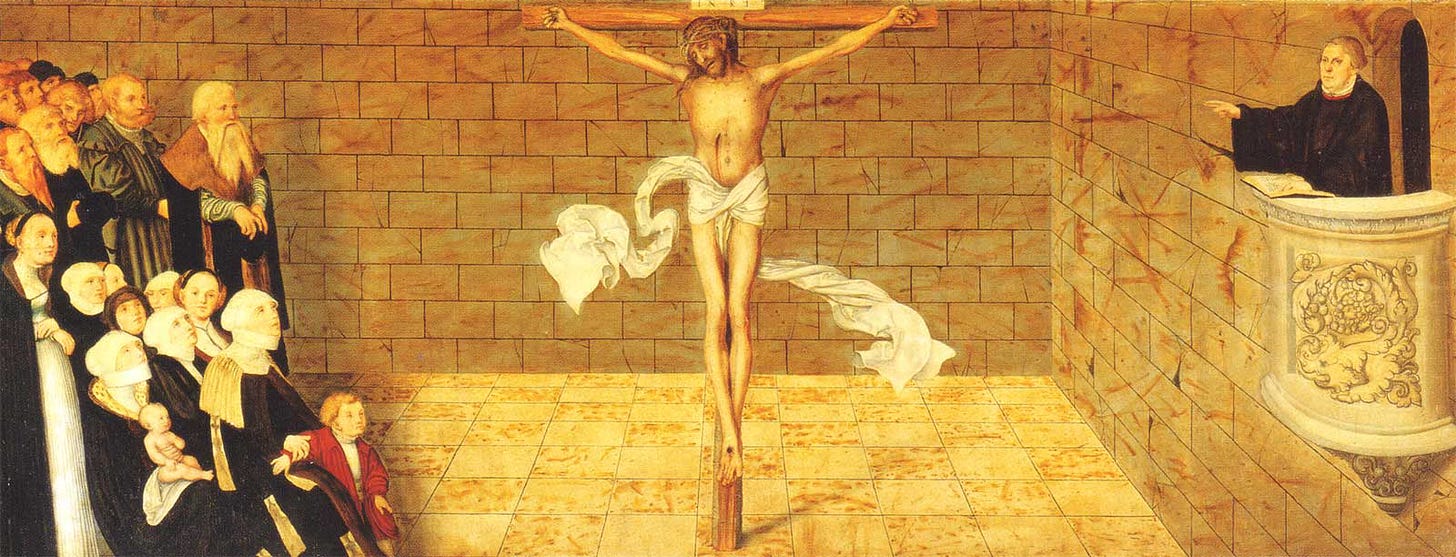From the vault:
Here is a session the Minion and I recorded on Martin Luther’s A Brief Instruction on What to Look for and Expect in the Gospels.
Summary
The conversation explores Luther's A Brief Instruction on What to Look for and Expect in the Gospels. Luther's response to being called a heretic was to press the movement forward by training pastors and making scriptures available to ordinary people. The conversation emphasizes the distinction between the law and the gospel, with Luther insisting that Christ is not a new lawgiver but a completely gratuitous gift. The concept of simul, being simultaneously justified and a sinner, is discussed, highlighting the tension between our sinful nature and our justification through Christ. The conversation also addresses the erroneous notions that the gospel refers only to the gospels and that the gospels are books of law. In this conversation, the hosts discuss the importance of understanding the gospel as a gift rather than an example to follow. They emphasize that the purpose of the gospel narratives is not to provide a blueprint for Christian behavior, but to reveal the life of Jesus as a gift of grace. They also explore Luther's teachings on reading the Old Testament and how he encouraged Christians to interpret it through the lens of Christ. The hosts address questions about Luther's anti-Semitism and its connection to German Christians accepting Nazism. They conclude by discussing the role of experiences in faith and the danger of Christians aligning themselves with empire.
Takeaways
Luther's response to being called a heretic was to press the movement forward by training pastors and making scriptures available to ordinary people.
The distinction between the law and the gospel is crucial, with Luther emphasizing that Christ is not a new lawgiver but a completely gratuitous gift.
The concept of simul, being simultaneously justified and a sinner, highlights the tension between our sinful nature and our justification through Christ.
Erroneous notions that the gospel refers only to the gospels and that the gospels are books of law should be corrected. The gospel is a gift of grace, not a set of rules or examples to follow.
Understanding the Old Testament through the lens of Christ helps Christians see the gospel throughout the entire Bible.
Experiences can help us believe the truth of the gospel, but the focus should be on the truth that created the experience, not the experience itself.
The danger of Christians aligning themselves with empire can lead to the acceptance of harmful ideologies, such as anti-Semitism and Nazism.
Sound Bites
"Luther's response to being called a heretic was to press the movement forward"
"The gospel is and should be nothing else than a discourse or story about Christ"
"Simul: At once justified and a sinner"
"That's the world we live in, that scripture to us."
"You can only come to the Father through me, for who I am, through what I do on your behalf and in no other way."
"Read the gospel stories through the lens of Paul."















Share this post